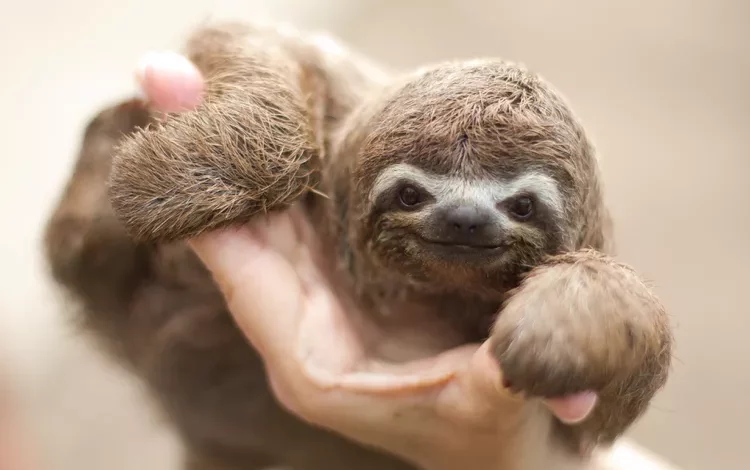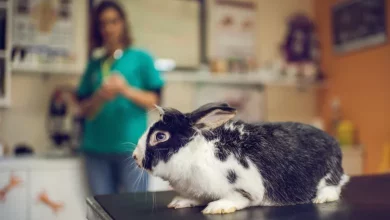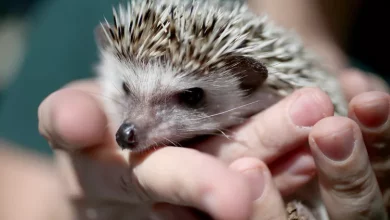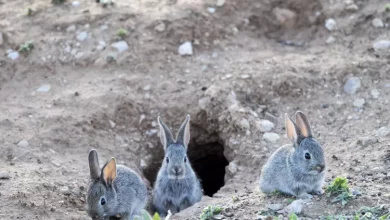Should You Keep a Sloth as a Pet?

The Legal Considerations of Keeping a Sloth as a Pet
The legal considerations of keeping a sloth as a pet are complex and vary depending on the jurisdiction. In the United States, for example, it is illegal to keep a sloth as a pet in some states, while in other states it is allowed with a permit. It is important to research the laws in your state before attempting to acquire a sloth as a pet.
In general, sloths are classified as exotic animals and require special permits for ownership. These permits are typically issued by the state’s Department of Natural Resources or Department of Fish and Wildlife. The requirements for obtaining a permit vary by state, but typically include proof of adequate housing, proper nutrition, veterinary care, and a plan for the animal’s future if it is no longer able to be cared for. It is also important to note that some states may require additional permits if the animal is to be used for educational or research purposes.
In addition to state laws, there may also be federal regulations that apply to owning a sloth as a pet. The Endangered Species Act (ESA) protects certain species of animals, including sloths, from being kept as pets. This means that it is illegal to keep a sloth as a pet if it is listed as endangered or threatened under the ESA. It is important to research the species of sloth you are considering before attempting to acquire one as a pet.
Finally, it is important to remember that owning an exotic animal
The Health and Safety Requirements for Keeping a Sloth as a Pet
Sloths are becoming increasingly popular as exotic pets, but they require a great deal of care and attention to maintain their health and safety. Sloths require a specialized diet, a temperature-controlled environment, and plenty of enrichment activities to keep them healthy and happy.
First and foremost, sloths must be kept in a temperature-controlled environment. They are native to tropical forests and cannot tolerate temperatures below 65°F (18°C). It is important to provide a warm, humid environment for your sloth to ensure their health and safety. This means providing adequate ventilation, heating, and air conditioning to maintain a comfortable temperature.
Second, sloths require a specialized diet. They are herbivores and need to eat a variety of fresh fruits and vegetables. They also need a high-fiber diet that includes leafy greens, hay, and other plant-based foods. It is important to provide your sloth with the proper nutrients to ensure their health and safety.
Third, sloths need plenty of enrichment activities to keep them healthy and happy. This includes providing them with toys, puzzles, and other items that will stimulate their minds and encourage them to explore their environment. Additionally, it is important to provide your sloth with plenty of space to climb, hang, and explore.
Finally, it is important to provide your sloth with regular veterinary care. Sloths are susceptible to parasites and other diseases that can be easily treated if caught early.
The Financial Cost of Keeping a Sloth as a Pet
The financial cost of keeping a sloth as a pet can be quite high. Sloths are exotic animals, and as such, require specialized care and attention. They require specialized diets, veterinary care, and housing. All of these factors can add up quickly.
First, sloths require a specialized diet. Sloths are herbivores, meaning they eat mostly leaves, fruits, and vegetables. This type of diet can be expensive, as it requires fresh produce that is often hard to find. Additionally, sloths may require supplements to make sure they get all the vitamins and minerals they need. These supplements can be costly as well.
Second, sloths require specialized veterinary care. Sloths are exotic animals, so they need to see a veterinarian who is familiar with their needs. This can be difficult to find, and may require travel to a specialist. Additionally, sloths may require regular check-ups or treatments for any health issues that arise. This can add up quickly.
Finally, sloths require specialized housing. Sloths are arboreal, meaning they live in in the wild. To this in captivity, sloths need an enclosure that is tall for them to climb and explore. This can be expensive to construct and maintain. Additionally, sloths need a warm environment with high humidity levels, which can also be costly to maintain.
In conclusion, the financial cost of keeping a sloth as a pet can be quite
The Space Requirements for Keeping a Sloth as a Pet
The space requirements for keeping a sloth as a pet are considerable. Sloths are arboreal animals, meaning they spend most of their time in the As such, they require that is tall enough to accommodate their climbing needs, as well as wide enough to provide them with plenty of room to move around.
The enclosure should be at least 8 feet tall and 8 feet wide, with a minimum of 10 feet of vertical space for climbing. The walls should made from sturdy materials such as wood or metal, and should be securely attached to the floor and ceiling. The enclosure should also be well-ventilated, with mesh panels to ensure adequate airflow.
The enclosure should also contain plenty of branches and other items for the sloth to climb on. These items should be securely attached to the walls, ceiling, and floor of the enclosure to prevent them from falling or being pulled down by the sloth. Additionally, the enclosure should contain several hiding spots for the sloth to retreat to when it feels threatened or stressed.
The enclosure should also be kept at a comfortable temperature for the sloth. Sloths are native to tropical climates, so the temperature should remain between 65 and 80 degrees Fahrenheit. Additionally, the enclosure should be kept relatively humid, with a humidity level between 50 and 70 percent.
Finally, the enclosure should contain plenty of enrichment items for the sloth to interact with. These items can include ropes, swings, and
The Behavioral Needs of Keeping a Sloth as a Pet
Keeping a sloth as a pet requires an understanding of their behavioral needs. Sloths are native to Central and South America and are primarily arboreal, meaning they spend most of their time in the trees. They are nocturnal animals, meaning they are most active at night, and they are solitary creatures, meaning they do not form social groups.
Sloths require a large enclosure that is at least 12 feet tall and has plenty of branches and foliage for them to climb on. Sloths need to be able to move around freely and should not be kept in cages or aquariums. The enclosure should also be kept at a temperature of 75 to 85 degrees Fahrenheit with high humidity levels.
Sloths are herbivores and their diet should consist of leafy greens, fruits, and vegetables. They should also have access to fresh water at all times. Sloths should be fed twice a day and their food should be supplemented with vitamins and minerals.
Sloths require regular exercise to stay healthy and active. They should be given the opportunity to climb and explore their enclosure every day. Sloths also need plenty of mental stimulation, so it is important to provide them with toys and activities that will keep them engaged.
Sloths are very sensitive animals and can become stressed easily. It is important to provide them with a quiet and secure environment where they can feel safe and relaxed. Loud noises, sudden movements, and unfamiliar people can all cause
Excerpt
Sloths are wild animals and are not suitable for a life in captivity. They require specialized diets and environments, and can become stressed when kept in a home setting. Keeping a sloth as a pet is not recommended and can be detrimental to their health and wellbeing.




